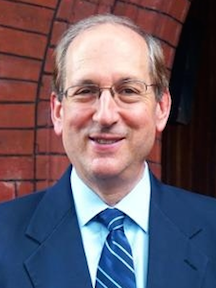The past months have been the most challenging time for higher education in recent memory. American campuses have experienced divisive unrest in reaction to the tragic events in the Middle East. Members of Congress, state legislators, and donors have sought to regulate academic curricula and programs and have attacked university leaders ad hominem. These dramatic events exist within a context of broader questions concerning the contours of free expression on campus and the boundaries of academic freedom. We are fortunate that in such times the values for which Phi Beta Kappa has stood for a quarter of a millennium shine a light on a path forward.
Phi Beta Kappa believes that a liberal arts and sciences education requires the ability to inquire deeply and to express oneself freely. This is why freedom of inquiry and freedom of expression have served among our indispensable hallmarks. Through this lens, we see that expression on our campuses is presumed to be protected. Of course there are limitations, but they are far out on the horizon. Justice Louis Brandeis (ΦΒΚ, Harvard) taught that unless “immediate serious violence was to be expected or advocated,” “the remedy to be applied is more speech, not enforced silence.”
“More speech” is the essence of liberal arts and sciences education. To be sure, some of what has been said at campus demonstrations has been ignorant and even hurtful. Those who have been hurt are entitled to a recognition of their harm, not suppression of others. And ignorance can only be remedied by education, not by discipline or punishment. To repeat, no one on campus should ever be threatened; but everyone may be challenged.
The liberal arts also speak to the way in which we challenge one another. As Lynn Pasquerella (ΦΒΚ, Mount Holyoke) wrote, we must seek “to promote conversations among people across differences, find common ground, and collaborate toward achieving our shared objectives by learning from one another regardless of our diverse viewpoints and lived experiences.”
The obligation of “more speech” applies to academic leaders as well. At a time when presidents and chancellors may understandably be afraid of saying too much or too little, they would do well to look to the advice of Michael Roth (ΦΒΚ, Wesleyan) to “speak up on the issues of the day when they are relevant to the core mission of our institutions.”
Liberal arts and sciences education also requires academic freedom, grounded in the right enshrined by scholars and courts alike: a college or university may “determine for itself on academic grounds who may teach, what may be taught, how it shall be taught, and who may be admitted to study.” Academic freedom requires shared governance, in which faculty retain primary responsibility for coursework, methods of instruction, academic standards, program development, degree requirements, and academic student affairs. Academic freedom is threatened when politicians overreach into the very heart of the academic enterprise. The goal of American academic freedom, as articulated by Robert Post (ΦΒΚ, Harvard) and Matthew Finkin, has been to “construct institutions of higher education as instruments of the common good rather than as organizations promoting the private views of wealthy donors or the passionate commitments of transient political majorities.”
Former ΦΒΚ President Edward Birge said a century ago: “We believe in our motto; we cognized philosophy as the pilot of life, not concerned to keep the ship in harbor but to guide it safely through dangerous waters.” A commitment to free expression and academic freedom has never been more essential.
Frederick M. Lawrence
Secretary and CEO




